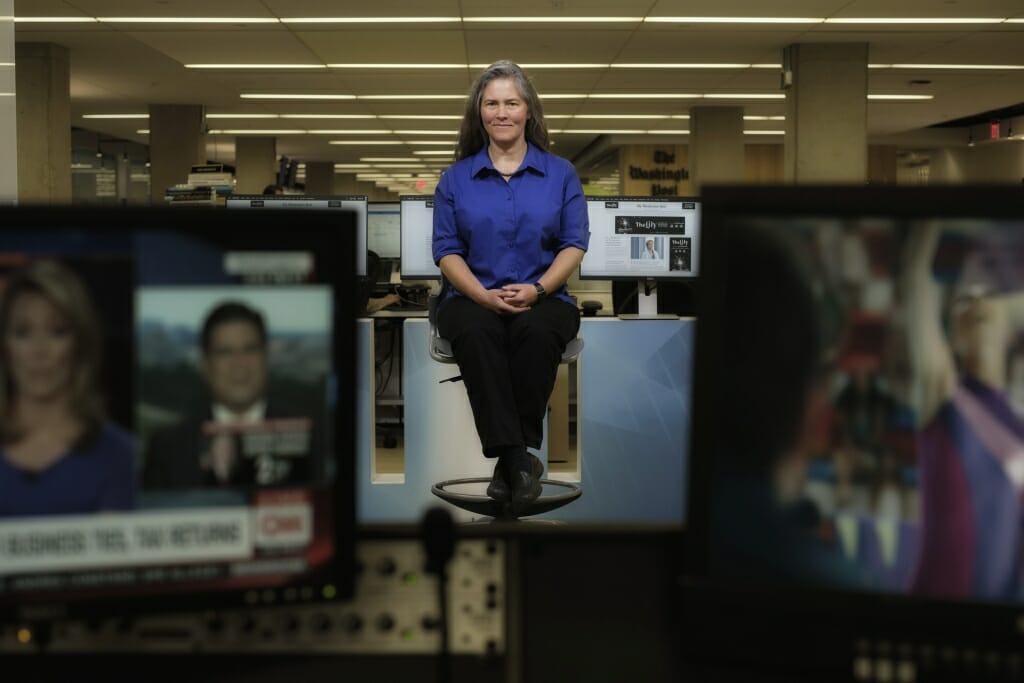Washington Post’s Helmuth is UW Science Writer in Residence

Laura Helmuth, the health, science and environment editor for the Washington Post, will spend her week on campus visiting classes, working with students and faculty, and exploring the UW–Madison research landscape. She will also take part in a public panel presentation, “Science Journalism in the Age of Fake News.” Photo: Dan Westergren
Laura Helmuth, the health, science and environment editor for the Washington Post, will be the fall 2018 UW–Madison Science Writer in Residence.
Helmuth will visit the UW–Madison campus the week of Oct. 21. She will spend the week visiting classes, working with students and faculty, and exploring the UW–Madison research landscape.
Helmuth will also take part in a public science café-style panel presentation, “Science Journalism in the Age of Fake News,” on Wednesday, Oct. 24, at 5 p.m. at Steenbock’s on Orchard, the restaurant in UW–Madison’s Discovery Building. The event, which is free and open to the public, will also feature UW–Madison Professor of Law and Bioethics Alta Charo and Wisconsin Institute for Discovery Director Jo Handelsman, both of whom have extensive experience shaping science policy in Washington.
Helmuth joined the Post in 2016. Previously, she had written and edited for National Geographic, Slate and Smithsonian over a career spanning two decades. At National Geographic, she oversaw the magazine’s digital news portfolio and at Slate was known for her creative editorial approach to directing coverage of science and health. She holds a doctorate in cognitive neuroscience from the University of California, Berkeley, and is now completing a term as president of the National Association of Science Writers.
The UW–Madison Science Writer in Residence Program is now in its third decade. A partnership between the School of Journalism and Mass Communication and University Communications, it seeks to bring journalists of national and international stature to campus. Past science writers in residence include Ed Yong of the Atlantic, Justin Gillis of The New York Times, Ira Flatow of Science Friday, Soren Wheeler of Radio Lab, and many others, including several whose work subsequently garnered Pulitzer Prizes — journalism’s most distinguished award.
The program was established in 1986 through the support of the Brittingham Trust. It continues with support from the University of Wisconsin Foundation.



